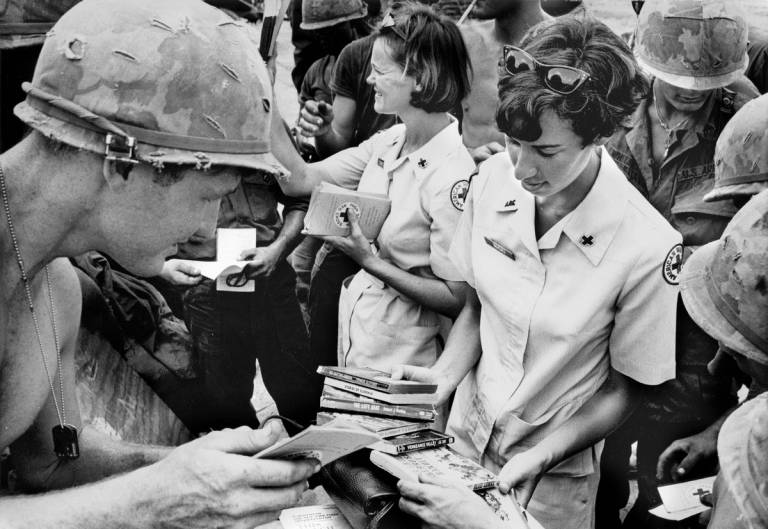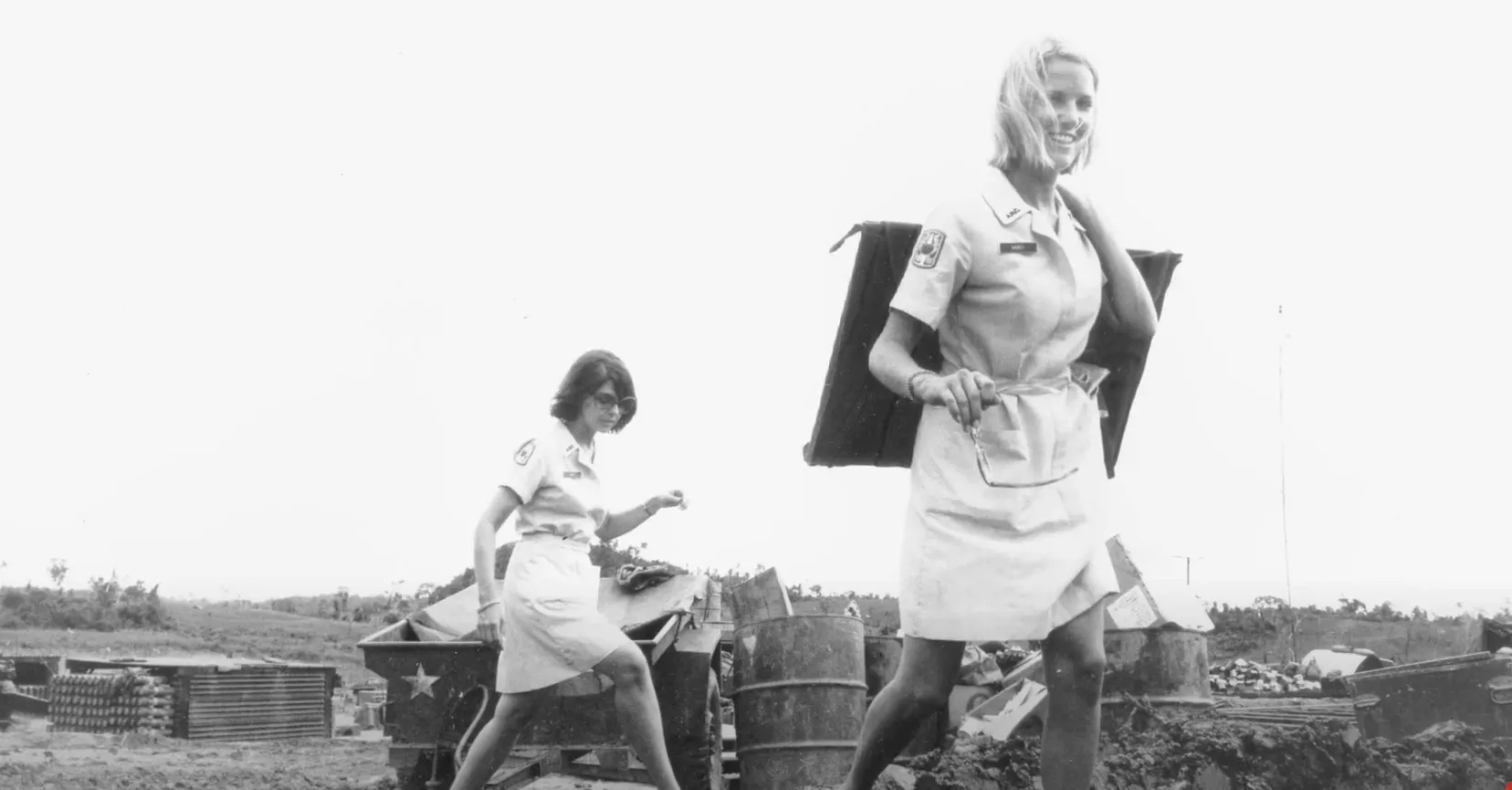When Peyton Wooldridge graduated from Mary Baldwin College in 1968, she had a job teaching 3rd grade waiting for her. But a letter from her school friend Caroline in Vietnam persuaded her to take a different course: “Peyton, you’ve got to come. It will change your life,” Caroline wrote.
Caroline and another friend had been recruited earlier on campus to become part of a mission run by the Red Cross that sent young women to help out the boys who were fighting in Southeast Asia. Women in the program had been called “Donut Dollies” in the Second World War, for the food and coffee they took to soldiers on the fronts. Peyton decided that was what she wanted to do, and signed up for a year’s tour.
She will tell about her experience at noon on Friday, Sept. 22, in a free lecture at the South Carolina Confederate Relic Room and Military Museum in Columbia. It’s one of a series of programs the museum is presenting, featuring South Carolinians who served over there, as a complement to its major new exhibit, “A War With No Front Lines: South Carolina and the Vietnam War, 1965-1973.”
Peyton was born in Charlotte, and raised by her grandparents in Chester. Her first name was “Elizabeth,” but her grandmother preferred to call her “Peyton.” The scandalous book and movie “Peyton Place” came out when she was a schoolgirl, and the other kids gave her no end of grief about it. At one point she had considered becoming a Presbyterian minister, but the seminary she applied to required all freshman to live in dorms – and there was no dorm for girls.
So she went to Mary Baldwin in Virginia – like so many at that age, she wanted to get away from Chester – and majored in religion and philosophy. There, she had only the vaguest idea about what was going on in Vietnam. She knew there were a lot of protests back here in the States, but she was pretty insulated from that at her school. There was one girl on campus whom she remembers wearing a jacket studded with political pins about various issues of the day, but she didn’t feel connected to that.
“I came from a very patriotic family,” she said, and she was willing to serve. “I knew that I could not do one pushup,” and she felt that if ever had “some drill sergeant spitting in my face, I would cry and run away.” So the Red Cross program sounded good. She had a job working in a hospital that summer – “I was a nurse’s aide, because I could run fast down the hallway” – and she would have liked to join the Red Cross nursing program. But she had no training for that.
So after two weeks of training, she was part of a group of 20 or so who traveled to Travis Air Force Base near San Francisco, to fly across the Pacific and serve as a Supplemental Recreation Aide Overseas. But she and the other girls didn’t like that title. It didn’t describe what they did as well as the old name “Donut Dollies” – so they embraced that.
Of course, they didn’t serve the troops doughnuts and hot coffee. Those had been perfect in the snow-covered Ardennes, or the Frozen Chosin in Korea. In the steaming environment of Vietnam, they handed out Kool-Aid and cookies. But they hated it when the guys called them “Kool-Aid Cuties.”
One problem with the official title was there wasn’t much “recreation” involved, aside from some games they took to the troops in the field – things based on popular TV shows, such as “Concentration.” The job was less that, she says, and more a matter a sort of “mental and emotional” service. For instance, they would help men who needed to make a phone call to the other side of the world. In those days, a soldier needed a good excuse for that – such as to check on a wife back home about to have a baby.
Don’t think for a moment that the “Dollies” were confined to rear echelons. Peyton and the others of her unit were based in Quy Nhon, and later in Danang, but their job was largely out in the combat zones, to which they were transported by jeep, truck or helicopters. They were well received by the servicemen at the firebases and other forward areas. And she doesn’t remember seeing any of the men behave inappropriately toward their visitors. Of course, there was usually a watchful officer nearby.
There wasn’t much time off-duty, and that took a toll. And while she was and is proud of her service, she remembers experiencing exhaustion and depression when she arrived back at Travis. When her mother and grandmother came to meet her in Charlotte, they didn’t recognize her. She had lost a lot of weight, and was “brown as a berry.”
She’ll have a lot more to tell at the museum on Sept. 22.




Comments are closed.